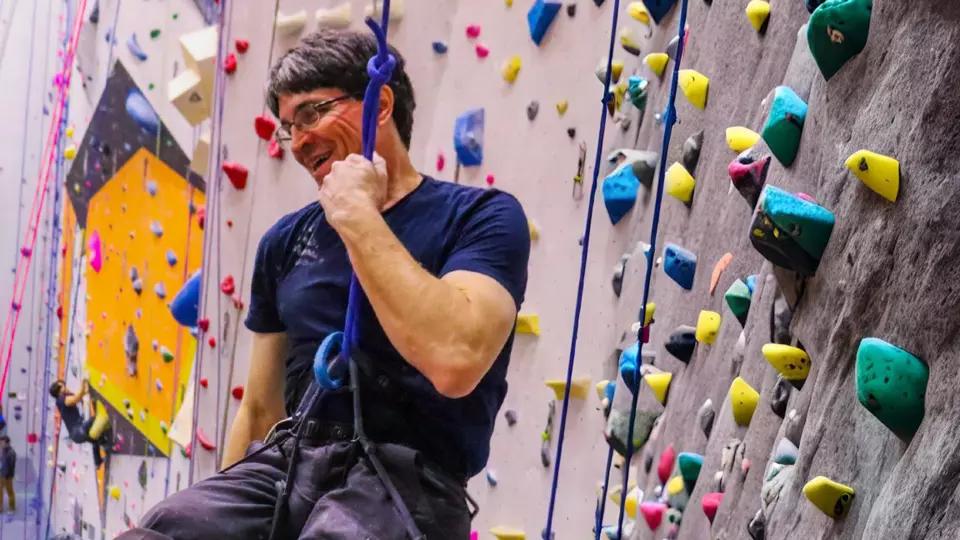John W. Freeland, a senior physicist and staff scientist at Argonne National Laboratory, is a specialist in soft X-ray spectroscopy and supports scientists using the Advanced Photon Source (APS). Known as one of the most powerful synchrotron light sources globally, the APS offers intense X-ray beams for scientific research across various disciplines. The APS has been shut down since April 2023 to facilitate a comprehensive upgrade. During this downtime, John seized the opportunity to take a sabbatical and visit PDI as a guest scientist. As he wrapped up his time in Berlin, we invited him to share his thoughts about the experience.
Can you explain what you do at Argonne?
“I've been a scientist at Argonne National Laboratory for about 25 years, supporting scientists using soft X-ray spectroscopy at APS. This technique allows us to delve into materials' properties, using 'element resolved X-ray probes' to understand each element's behavior in a specific environment. It's about connecting an atom's properties to its placement, shedding light on its charge and interaction with the environment. When we do spectroscopy, we shine X-rays and tune their energy across the material until we see a peak, revealing crucial information about the atom's charge and, if magnetic, its magnetism.”
How have you developed your skills in science communication?
“I learned the art of science communication through mentors and experiences. One key lesson was learning to simplify complex ideas during an undergraduate seminar. We spent weeks going through our talks and one tutor would keep pushing us to simplify what we were saying until we found the most understandable way to explain it. It made me realise that while something was obvious to me, it may not be obvious to others. Good science communication distills ideas to their essence, vital for proposal writing. As Mark Twain said, 'I apologize for such a long letter - I didn't have time to write a short one.'”
How important is collaboration to your work?
"Collaboration is fundamental in science. At the APS we spend much of our time supporting scientists who are doing experiments there. The rest of the time I spend on my own research, initiating projects such as one which facilitated collaboration by helping scientists document their processes so that others could do the same experiments without making the same mistakes. During my time at PDI, I’ve been helping Johanna Nordlander set up something similar: real-time X-ray monitoring of material growth at the PHARAO beamline at BESSY II, aimed at facilitating successful collaboration and advancing the field.”
How did you become aware of PDI?
"I collaborated with Roman Engel-Herbert when he was at Penn State, along with his colleague Venkatraman Gopalan. Roman and I continued collaborating until the APS shutdown. With the facility on hold, I saw the sabbatical as a chance to collaborate further. I contacted Roman – now Director of PDI – and he invited me to spend my sabbatical at PDI.”
How has your sabbatical experience been?
“Sabbaticals offer a chance to share knowledge. During my time here, I've taught online classes and shared insights gained at Argonne with scientists that I’ve met in PDI and other Berlin institutes. This experience introduced me to new opportunities and fascinating people, and has enriched my network.”
How does science in Germany compare to the US?
"I prefer the science in Germany; it's less tainted by 'science opportunism.' Germany understands science's long-term nature, unlike the US's short funding cycles. I enjoy being in an environment like Germany where people can take the necessary time to work on big problems.”
What will you do when you return to Argonne?
“At this career phase, I'm evaluating where I can bring the most benefit. The climate crisis is a pressing concern, and I'm exploring ways to contribute meaningfully.”
Thank you for sharing your insights, John. Your time at PDI has not only enriched our community but has also opened up new avenues for collaboration. We're excited about the continued exchange of knowledge between Argonne and PDI, nurturing a dynamic environment for scientific exploration and discovery.
